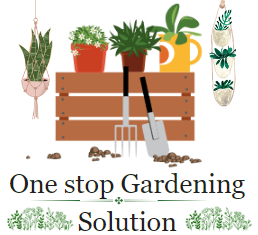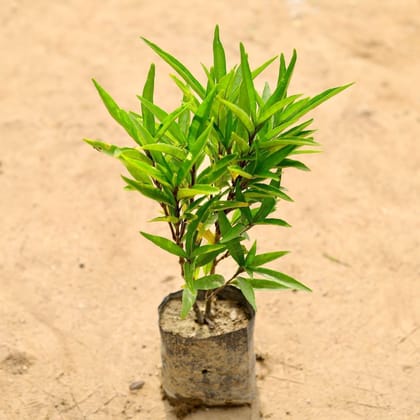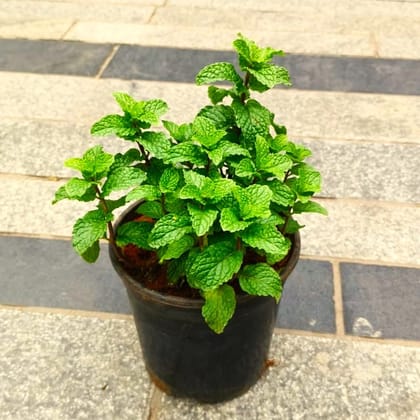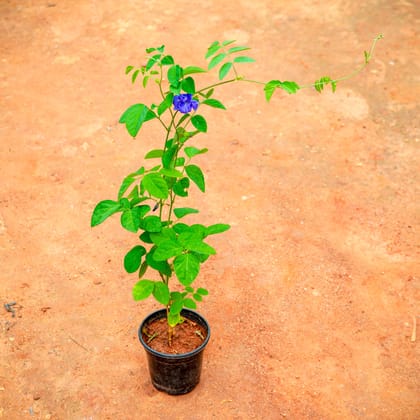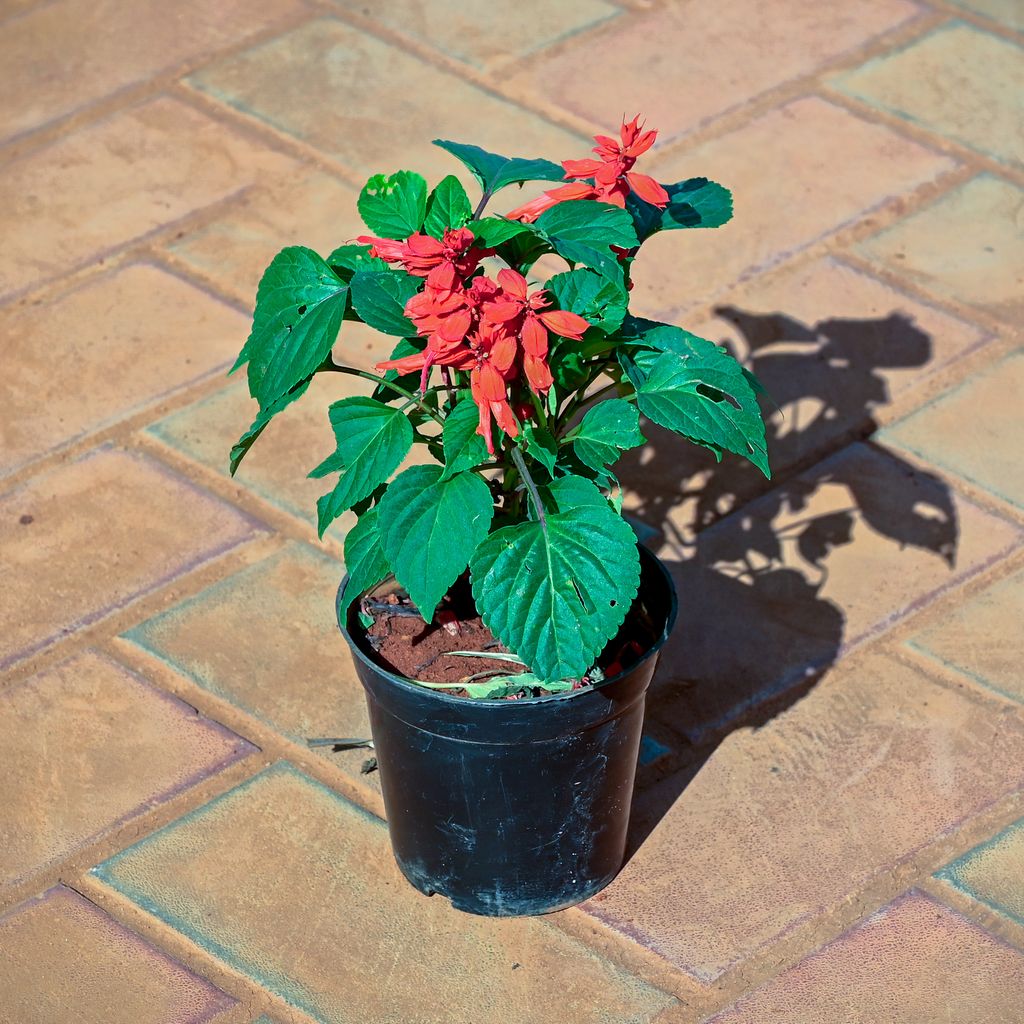
- Plants
- Plants
- Pots
- Pots
- Soil & More
- Soil & More
- Home Decor Plants
- Home Decor Plants
- Seeds
- Seeds
- Tools
- Tools
- Gifting
- Gifting
- Bulk Gifting
- Bulk Gifting
- Others
- Others
- Sale
- Sale
- Best Sellers
- Best Sellers
Urvann
Urvann is your one-stop online nursery for plants, planters, gardening accessories, and tools. Order fresh plants and get free home delivery on the next day!
EN65980d32655e278f250c5fb7 Salvia Red in 4 Inch Nursery Pot https://www.urvann.com/s/6176774ef575bbd2b3331c8a/65980d33655e278f250c5fc7/1percent20-87-.jpg
Salvia species include annual herbaceous plants, along with woody subshrubs. The stems are typically angled like other members in Lamiaceae. The leaves are typically entire, but sometimes toothed or pinnately divided. The flowering stems bear small bracts, dissimilar to the basal leaves—in some species, the bracts are ornamental and showy. The flowers are produced in panicles, and generally produce a showy display with flower colors ranging from blue to red, with white and yellow less common.
Benefits of Salvia Plant
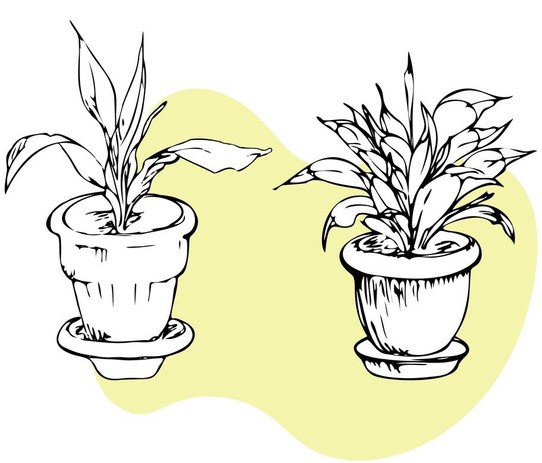 Ornamental Beauty :
Ornamental Beauty :
The Salvia flowering plant comes in many vibrant shades like white, purple, blue, and pink and will instantly add a pop of color to your home garden.
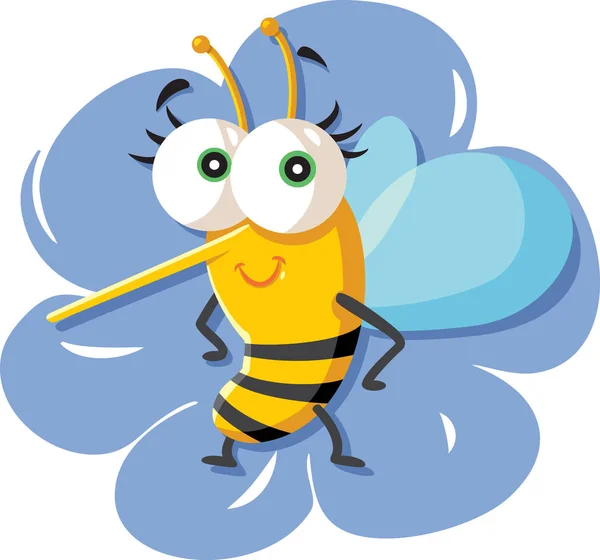 Attract Pollinators :
Attract Pollinators :
The blooms of the Salvia plant attract many pollinating insects such as butterflies, bees, and more. Pollination is very important to promote biodiversity.
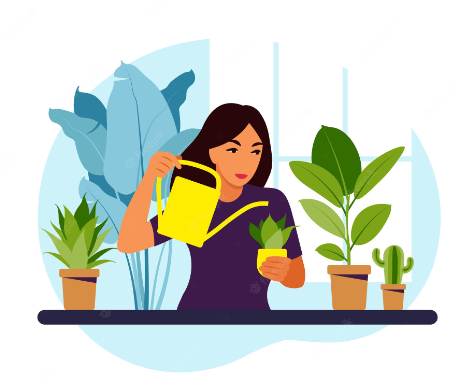 Low Maintenance :
Low Maintenance :
The flowers are very easy to care for and thrive well in tropical and subtropical countries such as India. However, the plant requires thorough watering and frequent pruning sometimes to help in its healthy growth.
Care Tips for Salvia Plant
 Watering :
Watering :
The soil for the Salvia plant must be kept moist, especially during the growing season. Water plants consistently, but avoid water-logging.
 Light :
Light :
The Salvia plant loves bright sunlight for at least 6-7 hours a day.
 Placement :
Placement :
Salvia is an outdoor plant. It should be kept in an area receiving bright sunlight.
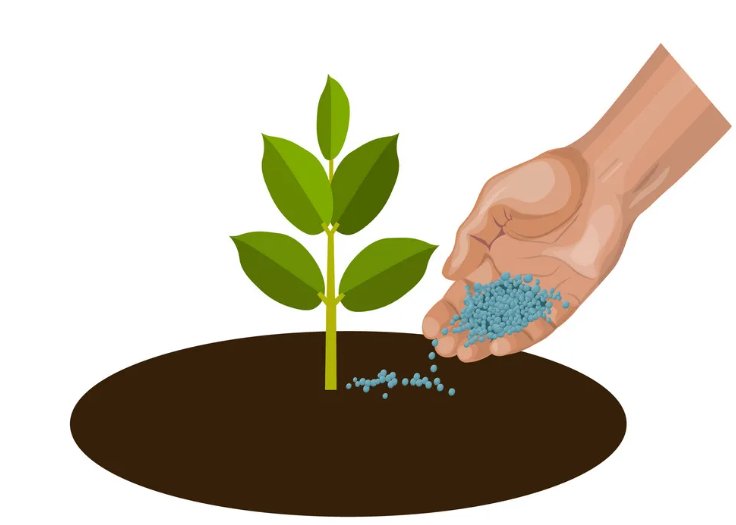 Fertilization :
Fertilization :
To Fertilize - Add nitrogen and phosphorus to the Salvia Plant to maintain good plant growth. You can also add dry banana peels as they are a rich source of nitrogen. You can also use Vermicompost every 2 weeks.
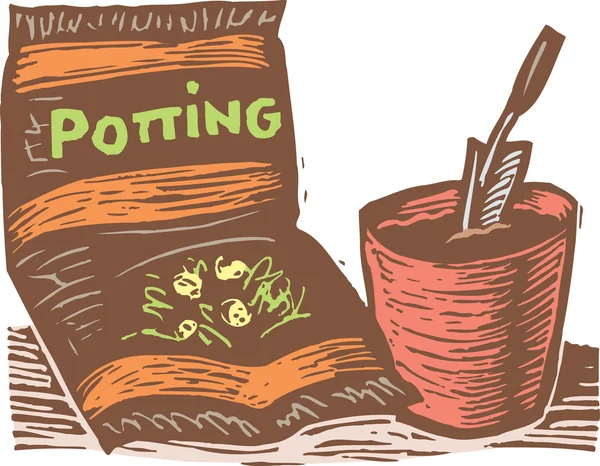 Ideal Soil Mix :
Ideal Soil Mix :
Salvia plants prefer acidic soil. Use cow dung as part of your soil mix as it will make the soil acidic. The ideal soil mix for this plant should be, Garden Soil (35%) + Cocopeat (30%) + Vermicompost (30%) + Neem Khali (5%)
 Pruning :
Pruning :
Keep pruning the Salvia plant to encourage flower growth and give it more spread.
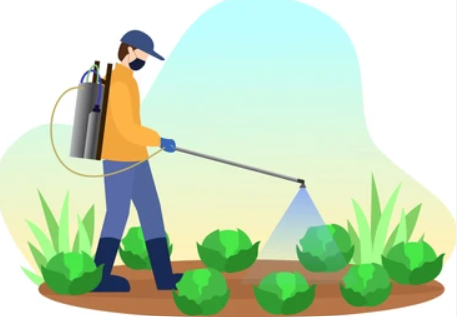 Pest Control :
Pest Control :
Aphids, Thrips, and whiteflies are a big problem for the Salvia plant. Keep spraying the plant with neem spray every 2 weeks to help with pest control.
Frequently Asked Questions about Salvia Plant
1. What are the common colors of Salvia plants?
Salvia plants commonly have flowers in shades of blue, red, lilac, white and sometimes yellow.
2. Can I grow Salvia indoors?
No, Salvia cannot be grown indoors as it needs lots of sunlight and a well-ventilated environment
3. How often should I water my Salvia plant?
Check to see if the topmost layer of the soil is completely dry, and water accordingly.
4. Where can I buy Salvia plants?
Head over to Urvann, India’s favorite online nursery, and browse from their extensive collection of plants.
5. Can I grow Salvia in cold climates?
Salvia is an annual plant and thrives with a slight nip in the air. Hence it is a plant of the winter season.
.
RJN0235Pin stockINR 89
1 1
Email ID already exists!
Your Current password is incorrect
Password Updated Successfully
Thanks for your Feedback
- Home
- Plants by Season
- Summer Plants
- Salvia Red in 4 Inch Nursery Pot
Salvia Red in 4 Inch Nursery Pot
₹89₹239 (63%OFF)
Sold By: RJN
Features
- Long bloom period
- Variety of colors
- Attracts pollinators
- Drought tolerant
Description of product
Salvia species include annual herbaceous plants, along with woody subshrubs. The stems are typically angled like other members in Lamiaceae. The leaves are typically entire, but sometimes toothed or pinnately divided. The flowering stems bear small bracts, dissimilar to the basal leaves—in some species, the bracts are ornamental and showy. The flowers are produced in panicles, and generally produce a showy display with flower colors ranging from blue to red, with white and yellow less common.
Benefits of Salvia Plant
 Ornamental Beauty :
Ornamental Beauty :
The Salvia flowering plant comes in many vibrant shades like white, purple, blue, and pink and will instantly add a pop of color to your home garden.
 Attract Pollinators :
Attract Pollinators :
The blooms of the Salvia plant attract many pollinating insects such as butterflies, bees, and more. Pollination is very important to promote biodiversity.
 Low Maintenance :
Low Maintenance :
The flowers are very easy to care for and thrive well in tropical and subtropical countries such as India. However, the plant requires thorough watering and frequent pruning sometimes to help in its healthy growth.
Care Tips for Salvia Plant
 Watering :
Watering :
The soil for the Salvia plant must be kept moist, especially during the growing season. Water plants consistently, but avoid water-logging.
 Light :
Light :
The Salvia plant loves bright sunlight for at least 6-7 hours a day.
 Placement :
Placement :
Salvia is an outdoor plant. It should be kept in an area receiving bright sunlight.
 Fertilization :
Fertilization :
To Fertilize - Add nitrogen and phosphorus to the Salvia Plant to maintain good plant growth. You can also add dry banana peels as they are a rich source of nitrogen. You can also use Vermicompost every 2 weeks.
 Ideal Soil Mix :
Ideal Soil Mix :
Salvia plants prefer acidic soil. Use cow dung as part of your soil mix as it will make the soil acidic. The ideal soil mix for this plant should be, Garden Soil (35%) + Cocopeat (30%) + Vermicompost (30%) + Neem Khali (5%)
 Pruning :
Pruning :
Keep pruning the Salvia plant to encourage flower growth and give it more spread.
 Pest Control :
Pest Control :
Aphids, Thrips, and whiteflies are a big problem for the Salvia plant. Keep spraying the plant with neem spray every 2 weeks to help with pest control.
Frequently Asked Questions about Salvia Plant
1. What are the common colors of Salvia plants?
Salvia plants commonly have flowers in shades of blue, red, lilac, white and sometimes yellow.
2. Can I grow Salvia indoors?
No, Salvia cannot be grown indoors as it needs lots of sunlight and a well-ventilated environment
3. How often should I water my Salvia plant?
Check to see if the topmost layer of the soil is completely dry, and water accordingly.
4. Where can I buy Salvia plants?
Head over to Urvann, India’s favorite online nursery, and browse from their extensive collection of plants.
5. Can I grow Salvia in cold climates?
Salvia is an annual plant and thrives with a slight nip in the air. Hence it is a plant of the winter season.
.
Related products
User reviews
Urvann is your one-stop online nursery for plants, planters, gardening accessories, and tools. Order fresh plants and get free home delivery on the next day!
Information
Major Categories
Gifting
Offers under 99
Offers Under 199
Plants
- Indoor Plants
- Low Maintenance Plants
- Flowering Plants
- Outdoor Foliage Plants
- Religious & Sacred Plants
- Air Purifying Plants
- Cactus & Succulents
- Good Luck Plants
- Plants by Location
- Plants of the Month
- Herbs-Medicinal & Vegetable Plants
- Fruit Plants
- Monsoon Plants
- Hanging Plants
- Potted Plants
- Bonsai Plants
- Special Plant Combos
- Bamboo Plant
- Pet Friendly Plants
- Plants to grow in Water
- Mosquito Repellent Plants
- Climbers & Creepers
Gardening Tools & Equipments
Soil & Fertilizers
Membership & Gift Cards
ADDRESS
Urvann India Private Limited
E-176
Delhi
Delhi 110060
IN
NEWSLETTER
Subscribe to get Email Updates!
Thanks for subscribe.
Your response has been recorded.
India's Number 1 Choice for Plants | Urvann India Private Limited


